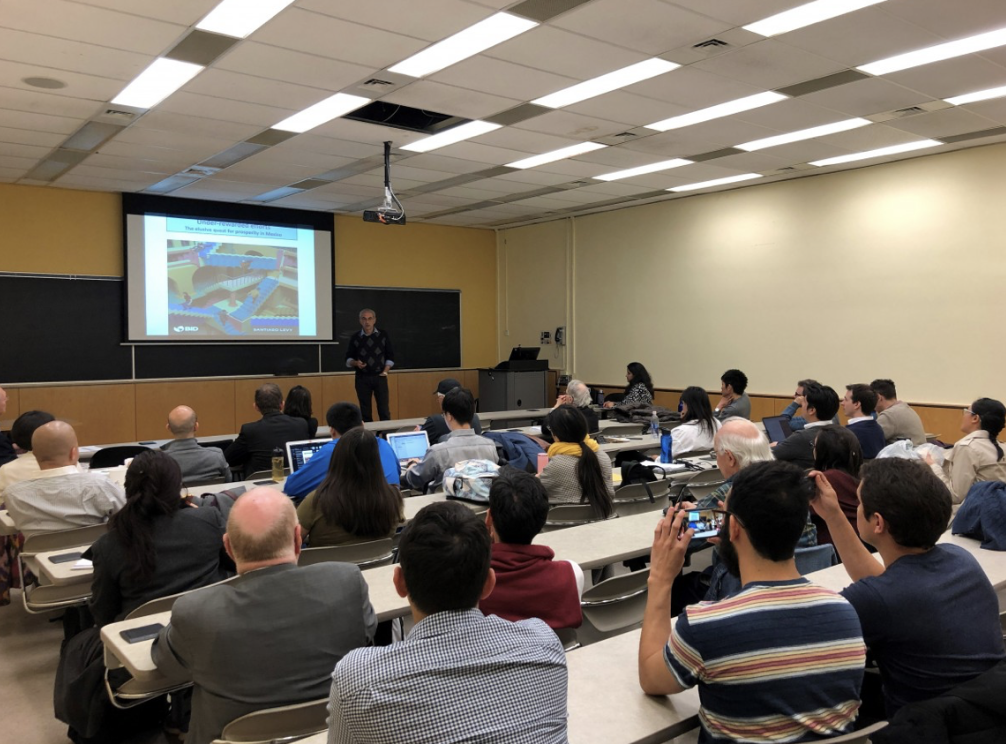Over the last two decades Mexico has maintained a stable macroeconomic environment, has made major efforts to integrate into the world economy, has invested heavily in education, has raised the investment rate, and has enjoyed the benefits of a demographic bonus but, with the exception of Venezuela, is the economy that has grown the least in Latin America. Why has an economy that has done so many things right failed to grow fast? Under-Rewarded Efforts traces Mexico’s disappointing growth to flawed microeconomic policies that have suppressed productivity growth and nullified the expected benefits of Mexico’s reform efforts. The book makes use of detailed firm level data to show that the allocation of resources has worsened as a result of dysfunctional firm dynamics. The book argues that large misallocation has depressed the returns to education and the returns to experience. It identifies major flaws in Mexico’s labor, social insurance, tax and contract enforcement policies, and argues that fast growth will only result from inclusive institutions that effectively protect workers against risks, redistribute towards those in need and simultaneously align entrepreneurs’ and workers’ incentives to raise productivity. This lecture is co-sponsored by Center on Global Economic Governance and MPA-Economic Policy Management
Government economic policy aims at improving people’s lives. This is true for emerging markets and advanced economies, and is potentially now more important than ever before. Nowadays, in fact, taxes, legislation, and rules shape many of the incentives at the base of an individual’s decisions.
This, and many other insights were at the center of Santiago Levy’s presentation at the School of International and Public Affairs (SIPA), Columbia University on April 25, where he discussed the findings of his latest effort, “Under-Rewarded Efforts: The Elusive Quest for Prosperity in Mexico”. In his book, Levy finds evidenced-based explanations for the conundrum that interested many academics and practitioner of his time: how could Mexico, an economy that has done so many things right, end up with disappointing results in terms of growth, productivity and social inclusion?
The answer, according to Levy, lies in the poor institutional setting within which many of these reforms were implemented. Mexico’s efforts to invest in human capital and education and implement anti-poverty measures and trade liberalizations are just a few examples of the good policies approved in the last decades. But the country was undoing at night all the good jobs completed during the day - the benefits of the reforms were nullified by dysfunctional labor market regulations, perverse taxation schemes and poor legal environment. Informality increased during the period, despite all the measures adopted. The under-performance of the less productive parts of the economy was actually undoing whatever progress the better performing parts generated.
Levy’s ability to combine sound economic frameworks and a pragmatic approach to complex public policy topics remind all aspiring practitioners at SIPA about the difficulties of shaping government economic policy. It’s an example that will be useful to those that dream about improving the life of their citizens and communities.
Santiago Levy is a Nonresident Senior Fellow with the Global Economy and Development Program at Brookings and President of the Latin American and Caribbean Economic Association. From 2008 to 2018 he was the Vice President for Sectors and Knowledge at the Inter-American Development Bank. From 1994 to 2000, he served as the Deputy Minister at the Ministry of Finance and Public Credit of Mexico. He was also General Director of the Mexican Social Security Institute from 2000 to 2005
At the Ministry of Finance he was the main architect of Progresa-Oportunidades, Mexico’s incentive-based health, nutrition and education program for the poor; managed the transition from generalized to targeted subsidies; promoted legal reforms to decentralize resources to states and municipalities; participated in the change of the pay-as-you-go to the capitalized pension system; promoted a regional plan to develop Mexico’s southern region; and drafted and negotiated six budgets with the Federal Congress. At the Social Security Institute he promoted legal changes to reform pensions and extend coverage to rural workers; was responsible for the provision of health services to 45 million people, introducing preventive health programs and electronic medical records; managed pensions for 2.5 million people and day-care centers for 230,000 children; managed $8 billion in reserves; and collected annually $20 billion in social security contributions. In 1993 he lead the work to draft Mexico’s first anti-trust legislation to regulate mergers and punish anti-competitive business practices, and served as the first president of the Federal Competition Commission.
Mr. Levy has published six books, 24 articles in academic journals and 20 book chapters. His latest book on economic growth in Mexico, “Under-Rewarded Efforts, The Elusive Quest for Prosperity in Mexico” was published in 2018 by the Inter-American Development Bank.

